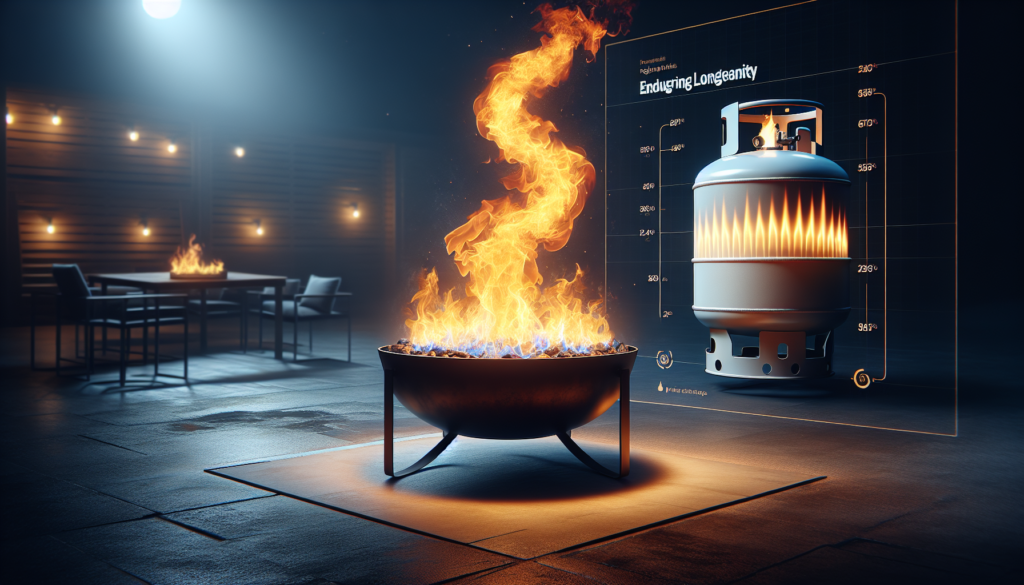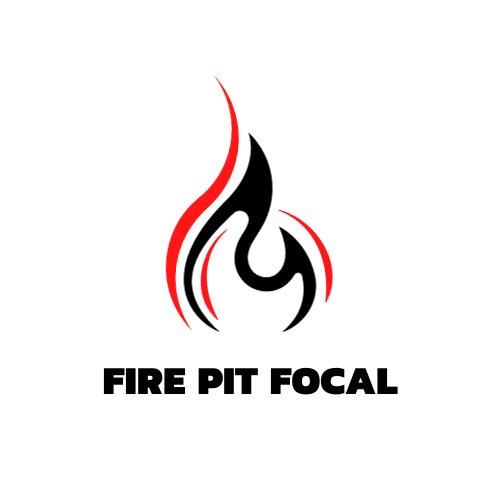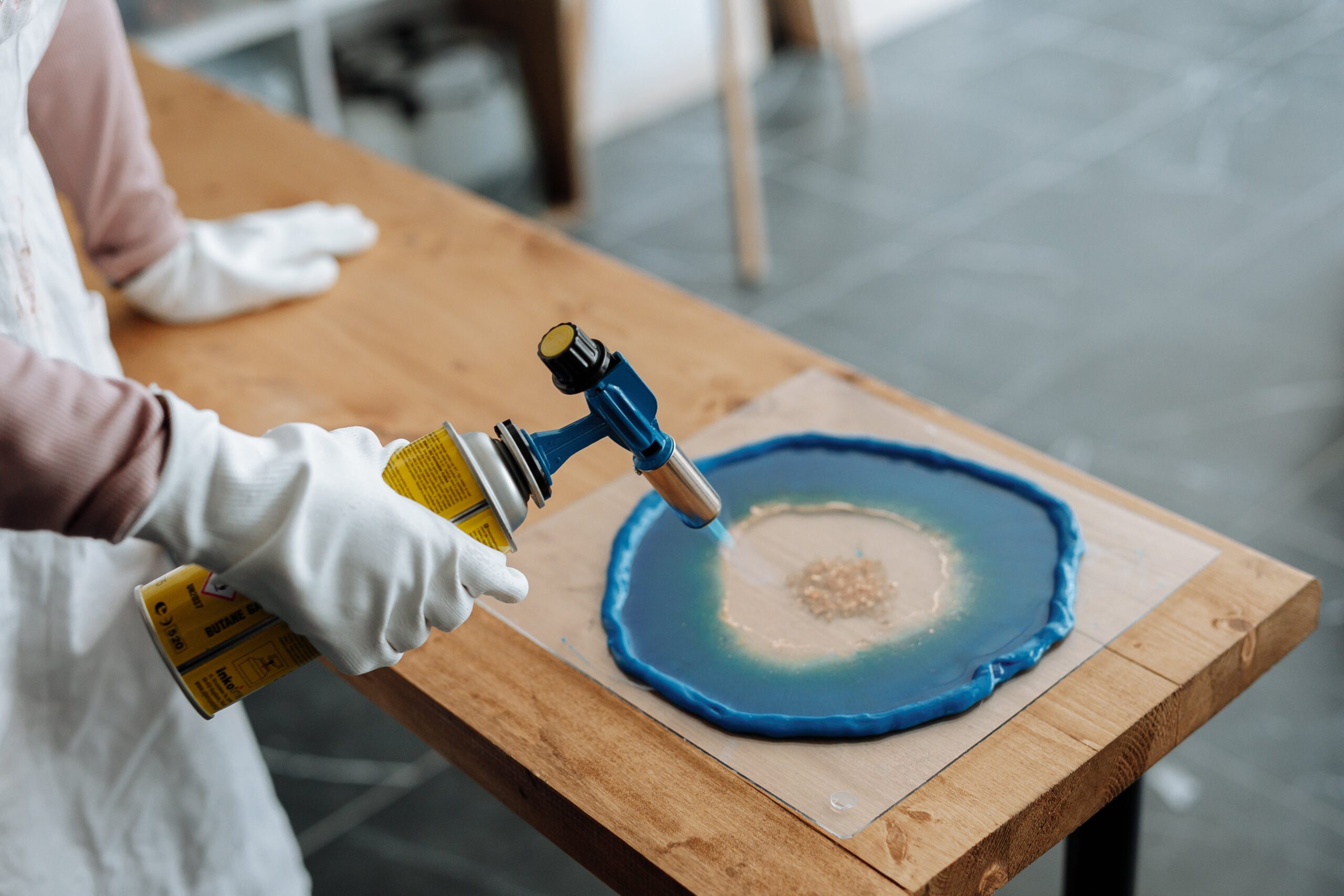In this article, we will explore the burning question on many fire pit enthusiasts’ minds: How long do propane tanks typically last in a fire pit? Whether you’re hosting a cozy backyard gathering or simply enjoying a peaceful evening by the fire, it’s important to understand the lifespan of your propane tank. We will delve into the factors that can affect the duration of propane tank usage, and provide some useful tips to ensure you can make the most of your fire pit experience. So, grab a seat, and let’s discover the burning truth together!
Factors Affecting the Lifespan of Propane Tanks
Propane tanks are essential for powering fire pits and various other appliances. If you own a fire pit that runs on propane, it’s important to understand the factors that can affect the lifespan of your propane tanks. By considering these factors and taking the necessary precautions, you can ensure that your propane tanks last as long as possible, keeping your fire pit running smoothly. In this article, we will dive into the key factors that can influence the longevity of propane tanks, including tank size, usage frequency, propane pressure, environmental conditions, and maintenance and inspection.
Tank Size
Understanding Propane Tank Sizes
Propane tanks come in various sizes, ranging from small portable tanks suitable for camping to large tanks used for residential or commercial purposes. The size of your propane tank can have a significant impact on its lifespan. Smaller tanks typically have a lower capacity, which means they will deplete faster and require more frequent refills or exchanges. On the other hand, larger tanks have a greater propane capacity, allowing them to last longer before needing to be refilled or exchanged.
Larger Tanks = Longer Lifespan
If you’re looking to maximize the lifespan of your propane tanks for your fire pit, opting for a larger tank is a smart choice. With a larger tank, you’ll be able to enjoy more extended periods of uninterrupted use without having to worry about refilling or exchanging the tank as frequently. This is especially beneficial for those who use their fire pits frequently or for extended periods.
Refilling vs. Exchanging Tanks
When it comes to propane tanks, you have the option to either refill your existing tank or exchange it for a new one. Refilling tanks allows you to keep the same tank and continue using it, while exchanging tanks involves swapping your empty tank for a full one. If you choose to refill your tank, it’s essential to ensure that the tank is in good condition and has passed an inspection. Exchanging tanks is a convenient option, but keep in mind that you may receive tanks of different ages and conditions, which could potentially affect their lifespan.

Usage Frequency
Fire Pit Usage Patterns
The frequency at which you use your fire pit can also impact the lifespan of your propane tanks. If you use your fire pit regularly, such as multiple times per week or for extended periods, your propane tanks may deplete more quickly compared to someone who uses their fire pit occasionally or only during certain seasons. Understanding your usage patterns will help you gauge how often you will need to refill or exchange your propane tanks.
Seasonal vs. Year-Round Usage
Another aspect to consider is whether you use your fire pit seasonally or year-round. Seasonal usage, such as only during the summer months, may result in your propane tanks lasting longer since they are not being used as frequently. On the other hand, if you use your fire pit year-round, especially in colder climates, your propane tanks may deplete more quickly due to increased usage to generate heat.
Propane Pressure
Regulator and Pressure Settings
The propane pressure at which your fire pit operates can impact both the efficiency and lifespan of your propane tanks. Properly regulating the pressure is crucial for optimal performance. Make sure you have a high-quality regulator that is suitable for your fire pit and ensures the correct pressure is delivered to the burner. Using the wrong regulator or improper pressure settings can lead to inefficient propane consumption and potential damage to your propane tanks.
Impact on Fuel Consumption
The propane pressure can affect the rate at which your fire pit consumes fuel. Insufficient pressure may result in a weaker flame and lower heat output, causing you to use more propane to achieve the desired warmth. Conversely, excessive pressure can lead to an overly powerful flame, which may not only waste propane but also pose safety risks. It’s important to find the right balance of pressure to maximize fuel efficiency and prolong the lifespan of your propane tanks.
Safety Considerations
When dealing with propane, safety should always be a top priority. Ensure that your fire pit and propane tank are set up and operated according to manufacturer guidelines and safety standards. Regularly check for any leaks or damaged components that could compromise the safety of your setup. If you suspect any issues, it’s crucial to address them promptly to minimize the risk of accidents or propane tank failure.

Environmental Conditions
Temperature Extremes
The environmental conditions in which your fire pit and propane tanks are exposed to can have a significant impact on their lifespan. Extreme temperatures, both hot and cold, can affect the performance and longevity of propane tanks. Propane tanks should ideally be stored and operated within a temperature range specified by the manufacturer. Exposing tanks to excessively high temperatures can cause the pressure within the tank to rise, leading to potential safety hazards. Similarly, extreme cold temperatures can affect the vaporization of propane, resulting in lower efficiency and reduced fuel output.
Humidity and Moisture
Humidity and moisture can also play a role in the lifespan of propane tanks. Moisture can cause rust and corrosion, which can weaken the tank’s structure over time. It’s essential to keep your tanks stored in a dry and well-ventilated area to prevent the accumulation of moisture. Additionally, if you use your fire pit in a humid environment, regularly inspect the tank for any signs of rust or corrosion and take proactive measures to address them.
Exposure to Sunlight
Propane tanks should be kept away from direct sunlight for extended periods. Prolonged exposure to sunlight can cause the exterior of the tank to heat up, which can potentially increase the pressure inside the tank. This increased pressure could potentially lead to safety issues. When storing or using propane tanks, it’s best to keep them in a shaded or covered area, away from direct sunlight.
Impact of Wind and Rain
If your fire pit and propane tanks are exposed to the elements, wind and rain can also affect their lifespan. Strong winds can blow debris into your fire pit and cause damage to the propane tank or its components. Rainwater can potentially seep into the tank if there are any leaks or cracks, leading to rust and corrosion. It’s important to ensure that your fire pit setup is well-protected from wind and rain to prevent any unnecessary wear and tear on the propane tank.
Maintenance and Inspection
Regular Checkups and Cleanings
Regular maintenance and inspection of your propane tanks are essential to maximize their lifespan and ensure safe operation. Schedule routine checkups to inspect the condition of the tank, valves, fittings, and hoses. Clean the exterior of the tank to remove any dirt or debris that could potentially lead to rust or corrosion. By keeping your tanks clean and well-maintained, you can help prolong their lifespan and minimize the risk of failure or accidents.
Identifying and Repairing Leaks
Leaking propane can be extremely hazardous. Regularly inspect your propane tanks for any signs of leaks. Leaks can often be identified by the smell of propane or the sound of gas escaping. If you detect a leak, immediately shut off the propane supply and address the issue. Depending on the severity of the leak, you may need to replace the affected components or even the entire propane tank. Prompt detection and repair of leaks are crucial for both safety and the longevity of your propane tanks.
Replacing Components
Over time, certain components of your propane tank and fire pit setup may become worn out or damaged. It’s important to replace these components as necessary to ensure the safe and efficient operation of your fire pit. This may include valves, regulators, hoses, or fittings. Follow the manufacturer’s guidelines and consult with professionals if needed to properly replace any components that are showing signs of wear or damage.
Proper Storage
When your fire pit is not in use or during the offseason, proper storage of your propane tanks is vital. Propane tanks should be stored outdoors in a well-ventilated area away from any sources of heat, flame, or sparks. Ensure that the tanks are stored upright and secured to prevent any accidental toppling or damage. Regularly inspect the tanks for any signs of wear or damage and address any issues before using them again.
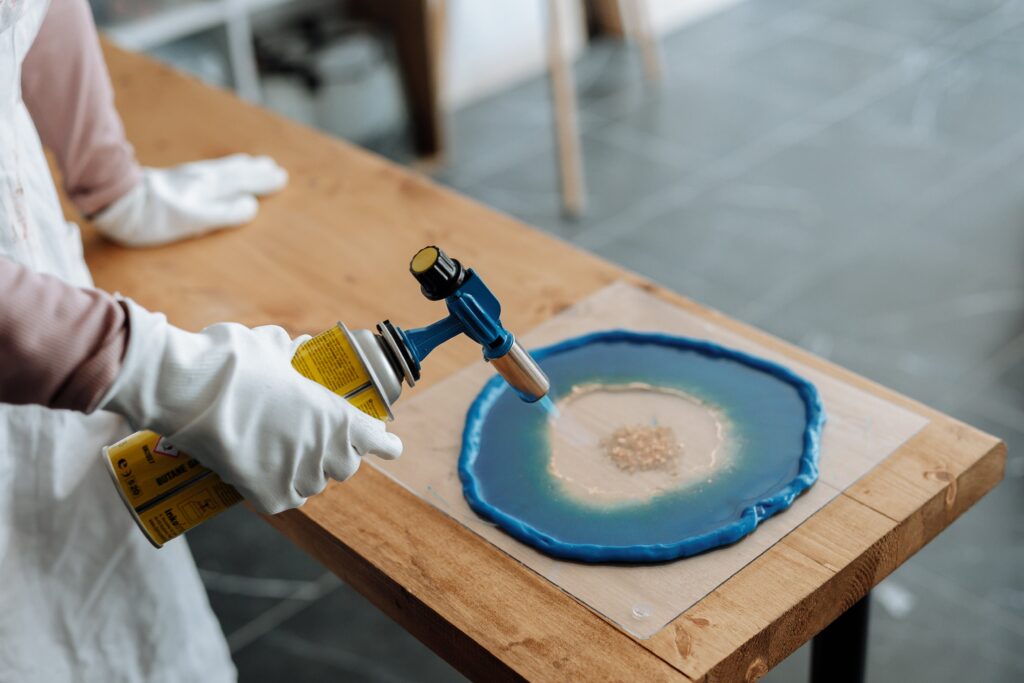
Signs of Propane Tank Depletion
Weak Flame or Low Heat Output
When your propane tank is running low, you may notice a weak flame or a significant decrease in heat output from your fire pit. This is a clear indication that your tank is nearing depletion and will require a refill or exchange soon. If you consistently experience a weak flame or low heat output, it’s important to check the level of propane in your tank and plan accordingly.
Difficulty Igniting
If you’re having difficulties igniting your fire pit, it could be a sign that your propane tank is running low. With less propane available, the ignition process may be affected, resulting in difficulties in getting your fire pit to ignite. If you find yourself struggling to ignite your fire pit consistently, consider checking the propane level in your tank and refilling or exchanging it if necessary.
Frequent Need for Tank Refills
If you find yourself needing to refill or exchange your propane tank frequently, it may be an indication that your tank is nearing the end of its lifespan. Frequent refills can be a hassle and may cost you more in the long run. If you’re consistently experiencing the need for frequent tank refills, it might be worth considering upgrading to a larger tank or inspecting your setup for any potential leaks or inefficiencies.
Aging Tank Components
Propane tanks age over time, and the components within them can become worn out or damaged, impacting their performance and lifespan. If you notice any signs of deterioration or corrosion on the tank or its components, it may indicate that it is time to consider replacing the tank. It’s always better to address aging tank components before they pose safety risks or lead to further damage.
Replacing Propane Tanks
When to Consider Tank Replacement
Knowing when to replace your propane tank is essential for maintaining a safe and efficient fire pit. If your tank has exceeded its recommended lifespan, shows signs of significant wear or damage, or frequently requires repairs, it may be time to replace it. Consider consulting with professionals to assess the condition of your tank and determine if it should be replaced. Investing in a new tank will ensure reliability and peace of mind in the long run.
Proper Disposal of Old Tanks
When replacing your propane tank, it’s important to dispose of the old tank properly. Propane tanks should never be thrown in the regular trash or recycling bins. Contact your local propane supplier or the appropriate authorities to inquire about the proper disposal methods in your area. They will be able to guide you on the safest and most environmentally friendly way to dispose of your old propane tank.
Size and Budget Considerations
When selecting a new propane tank, you’ll need to consider both size and budget. Assess your usage patterns and the frequency at which you use your fire pit to determine the appropriate tank size for your needs. Keep in mind that larger tanks generally offer longer lifespans but may also come with a higher price tag. Balancing your budget and desired usage will help you choose the right tank that will meet your requirements.
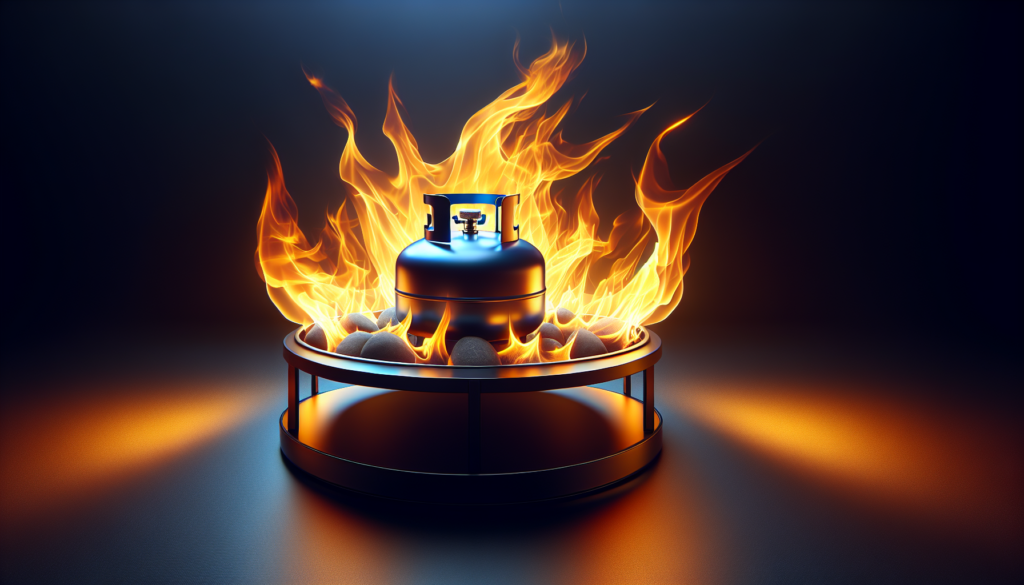
Safety Precautions
Keeping a Safe Distance
Maintaining a safe distance between your fire pit and propane tank is crucial for safety. Always adhere to the recommended clearance distances provided by the manufacturer. The appropriate distance will ensure that the tank is not exposed to excessive heat, flames, or sparks, minimizing the risk of accidents or tank damage.
Proper Ventilation
Propane tanks and fire pits require proper ventilation to prevent the build-up of gas fumes. Ensure that your fire pit is set up in a well-ventilated area, allowing for the safe dispersion of any gas fumes that may be present. Poor ventilation can lead to a potentially dangerous concentration of propane gas, increasing the risk of fire or explosion.
Consulting Manufacturer Guidelines
Each fire pit and propane tank setup may have specific guidelines provided by the manufacturer. It’s important to read and follow these guidelines to ensure safe and efficient operation. The manufacturer’s instructions will provide valuable information on proper installation, usage, maintenance, and safety precautions specific to your particular setup.
Employing Fire Safety Measures
Fire safety should never be overlooked when using a fire pit powered by propane. Keep a fire extinguisher nearby and ensure that it is easily accessible in case of emergencies. Familiarize yourself with the proper use of a fire extinguisher and ensure that it is in good working condition. Additionally, follow general fire safety practices such as keeping flammable materials away from the fire pit and never leaving it unattended while it is in use.
Conclusion
Understanding the factors that affect the lifespan of propane tanks is essential for any fire pit owner. By considering factors such as tank size, usage frequency, propane pressure, environmental conditions, and proper maintenance and inspection, you can extend the lifespan of your propane tanks and enjoy uninterrupted use of your fire pit. Remember to prioritize safety by following guidelines and taking the necessary precautions. With proper care and attention, your propane tanks will provide you with many enjoyable fire pit experiences for years to come.
